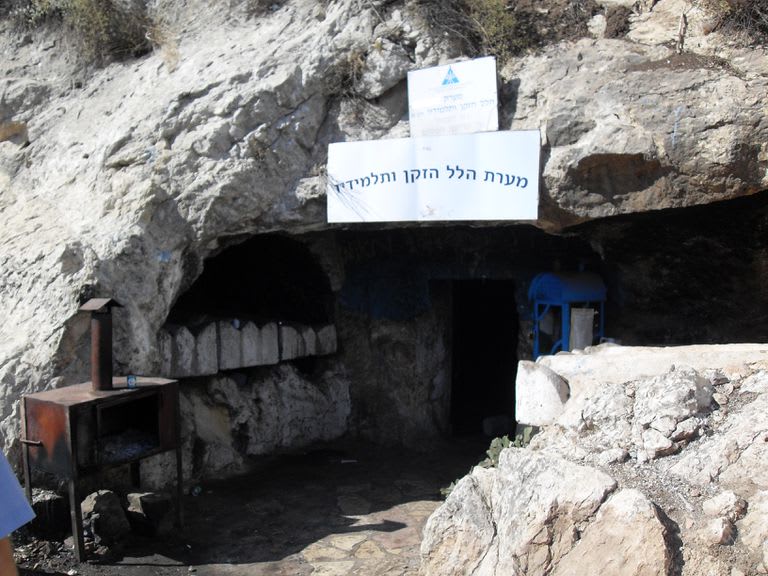I am a big fan of rabbinic literature, and I love sharing its delights with others. So, here is an eerie text from the Jerusalem Talmud that is perfect for the Halloween season. It’s all about Torah Zombies!
The translation below comes from Jacob Neusner’s monumental translation. “R.” is “Rabbi.”
Torah Zombies in Jerusalem Talmud, Seder Zera’im, Tractate Berakhot
[II:3 A] Now R. Yohanan required that [his students] attribute his teachings to him [whenever they repeated them]. [B] Accordingly, even King David [implied that a person who repeats his words attribute them to him]. He asked [God] for mercy, “Let me dwell in thy tent for ever!” [Ps. 61:4]. [C] [How should one interpret this verse?] R. Pinhas, R. Jeremiah in the name of R. Yohanan, “Did it ever cross David’s mind that he would live forever? Rather so said David, ‘Let me merit that my words be spoken in my name in the synagogues and in the study halls.’”
Don’t Plagiarize. It Makes the Sages Sad. Help Them to Become Torah Zombies!
The discussion about Torah Zombies begins with an innocuous enough teaching. It is well known that rabbinic literature piles attributions on one another. A sage rarely provides a teaching without citing the rabbi from whom he received it. Often the sage produces a chain of authority reaching back two or even three generations. (The text exemplifies this itself when it has Rabbi Pinhas citing Rabbi Jeremiah in the name of Rabbi Yohanan). Here the Jerusalem Talmud says plainly that Rabbi Yohanan actually required this style of attribution of his disciples.
Then the Jerusalem Talmud provides a scriptural midrash as support. It asserts that this is precisely what David is praying for in Psalm 61 when he begs God to allow him to live in His tent for ever. He is asking to have his words spoken in the synagogues and study halls of the Jewish people. And he is also asking that when his words are spoken, he be given proper attribution for them. (So, the Bible condemns plagiarism, kids).
Naturally enough, the audience wants to know why this should matter to sages after they die. What possible benefit could there be to attributing a teaching to a sage after he has gone to his reward? Doesn’t death remove you from the sphere of honor and reward? Apparently not. When someone teaches Torah in your name after you die, you have the distinct honor of becoming a Torah Zombie. Check out what the Jerusalem Talmud has to say about this.
Reciting the Tradition from the Grave
[D] And what benefit is there [in attributing a teaching to another sage]? [E] Levi bar Nezira said, “When one recites a tradition in the name of its original author [who has passed away], the author’s lips move in unison with him in the grave [reciting the tradition. On account of the attribution the author merits a moment of life after death in the world to come].”

Torah Zombies! The idea is that by providing proper attribution to your master after his death, you actually give him with a moment of resurrection. As a result, when you quote him, he revives, and speaks with you from the grave. Cool!
The idea of Torah Zombies is hard to swallow, of course. So the Jerusalem Talmud immediately provides another scriptural midrash.
[F] What is the scriptural basis for this teaching? “[And your kisses are like the best wine that goes down smoothly] gliding over the lips of sleepers [Song 7:9].”[After death one’s lips move] like the wine which glides off of grapes ripening in a basket [if someone recites a teaching in his name]. [G] R. Haninah bar Papai and R. Simon [explained the verse cited above]. [H] One said as follows, “Compare this [case in the verse] to one who drinks [spiced] conditon-wine.” [I] And the other said, “Compare this [case in the verse] to one who drinks aged wine.” Even though he finished drinking, the taste remains on his lips. [So too, one who recites Torah. The words remain on his lips after his death. When others repeat the tradition in his name, his lips move along with theirs.]
Torah’s After-Taste
So, teaching Torah is like drinking good wine with a pleasant after-taste. If we drink Torah in this life, we continue to taste it in the next one. And that turns you into a Torah Zombie.
